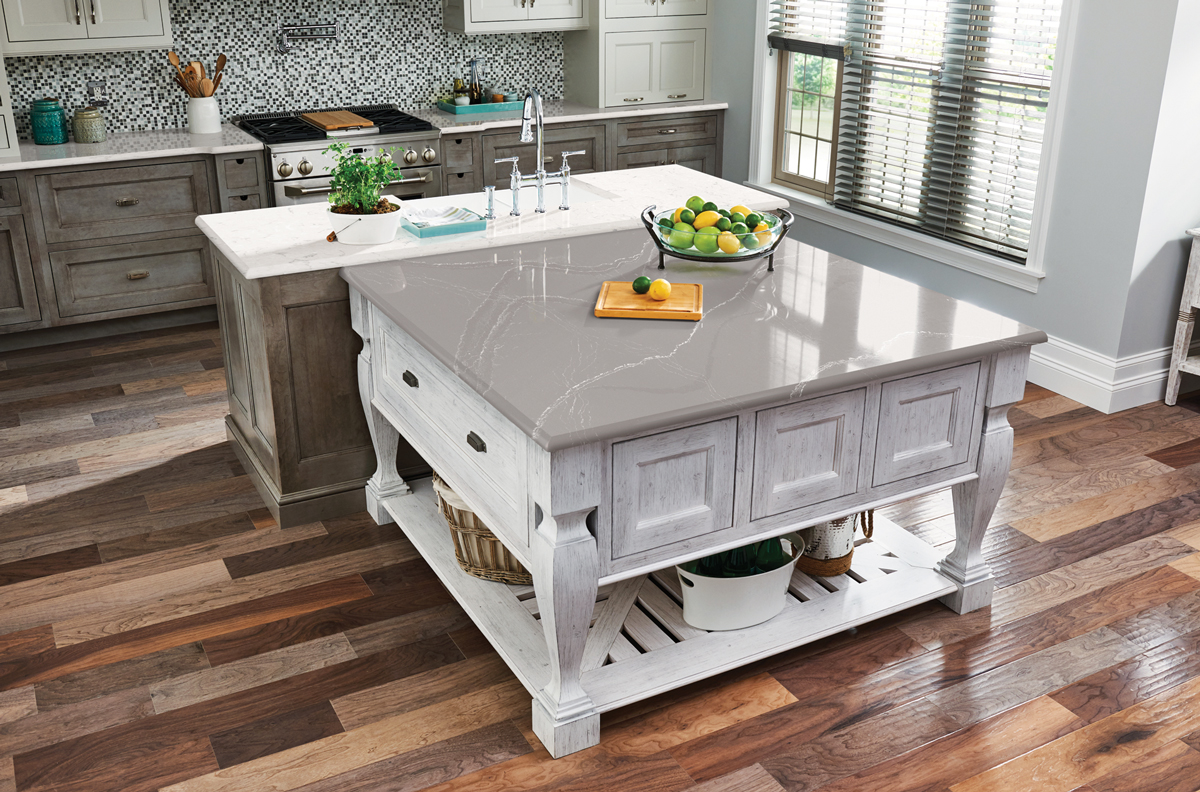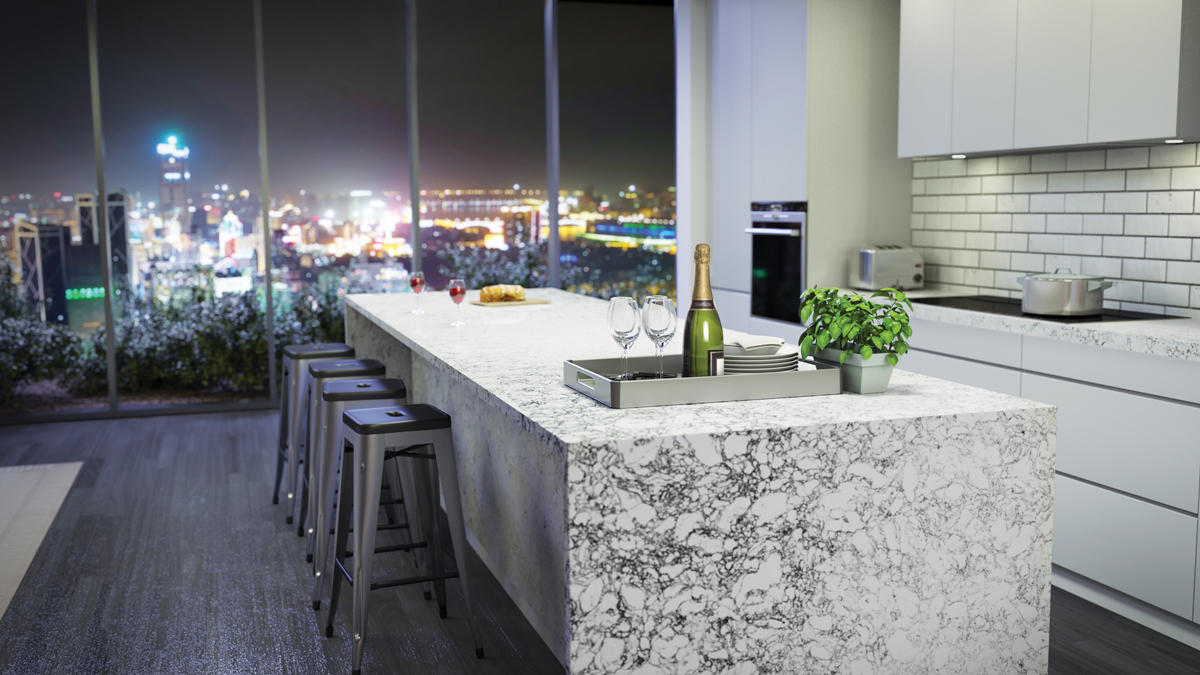The Carefree House: Counter Intelligence
Writer Mary VinnedgeHow does quartz stack up against natural stone?
The Carefree House explores attractive, durable home materials requiring low or no upkeep. This issue focuses on countertops.
DNJ: Quartz countertops are all the rage right now. Are they relatively new to the marketplace?
KATH: They’ve been around more than 40 years.
DNJ: Tell us briefly how quartz countertops are manufactured.
KATH: We take the raw material, quartz, and crush it. In a big mixer, we blend the crushed quartz, a binder and pigment. Quartz is clear without the pigment. Then it’s baked at 270 degrees and allowed to cure. After that, it’s polished.
DNJ: When a homeowner is considering countertop options, how do quartz products compare with granite and marble in terms of durability and maintenance?
KATH: Any natural quarried stone will be porous and higher-maintenance because it will stain and etch. In granite, there are lesser-performing types and better-performing ones, but even the better-performing ones are not as durable as quartz and still are porous. Marble in general will stain and etch pretty easily. In bathrooms, toothpaste can etch natural stone, but it won’t etch quartz. Lemon juice won’t etch it either.
And even though quartz won’t scratch or etch, use a cutting board to keep from dulling your knife blades.
All of these stones, even quartz, are cold, and rapid temperature change from very cold to very hot can crack them, so we always recommend a trivet. Quartz often can be used for fireplace surrounds, but check with your fabricator to be sure you’re copacetic.
DNJ: Are there any substances that can stain quartz countertops?
KATH: There’s no staining—not red wine, not mustard.
DNJ: The seams in natural stone can sometimes be rather wide and noticeable. Are quartz seams consistently narrow?
KATH: Because quartz is completely dense and solid, without the fissures present in natural quarried stone, it’s easy to seam during installation. It’s easier to install than natural stone, and it’s easy to make the seams invisible.
DNJ: How much will I pay for quartz countertops?
KATH: We always say the price compares to the mid-tiered granite in your market. Cambria runs $85 to $100 per square foot installed.
DNJ: Can quartz countertops be custom-manufactured to create a unique look?
KATH: We sometimes will do custom Cambria, but we evaluate it case by case.
DNJ: What should a consumer consider for his or her kitchen countertops in terms of color, movement, sheen and overall look? What looks are especially popular?
KATH: People are buying whites and grays and marble looks. In Europe, where I travel for work, glitzier looks are coming. We have so many looks to choose from, and the showroom staff and your own designer can guide you. It comes down to the market and designers to guide consumers toward what they love.
We also have design tools on our website so people can try out various countertops, and it’s very lifelike. They can change the edge profiles too … One very popular edge profile right now is the Ridgeline in a 3-centimeter thickness that’s simple and straight.
Waterfall designs [where the countertop continues down the sides of cabinetry] are very hot. When there’s a linear movement in the quartz countertop, it’s very pretty to carry that down the waterfall. People like the waterfall look, and if you have kids, they’re not bumping into a cabinet; they’re bumping into a tough vertical surface instead.
Lots of people are installing honed marble, which is very classic and timeless. It has become a huge trend, and I had been asked to do a honed look for years. The problem had been that the honing process creates ridges, even in quartz, that can stain just on the surface. But now we have a matte countertop [that imitates the look of honed natural stone] and doesn’t stain.
DNJ: How long will quartz countertops last, and what type of warranty is available?
KATH: It should outlast you. We have people tell us there was a fire and it wasn’t damaged. It’s a lifetime product with a limited lifetime warranty.
Editor’s note: Cambria is available at many New Jersey dealers, including DuBell Lumber Co. in Medford and Monk’s Home Improvements in Morristown. To find more sources, visit CambriaUSA.com/purchasing.


